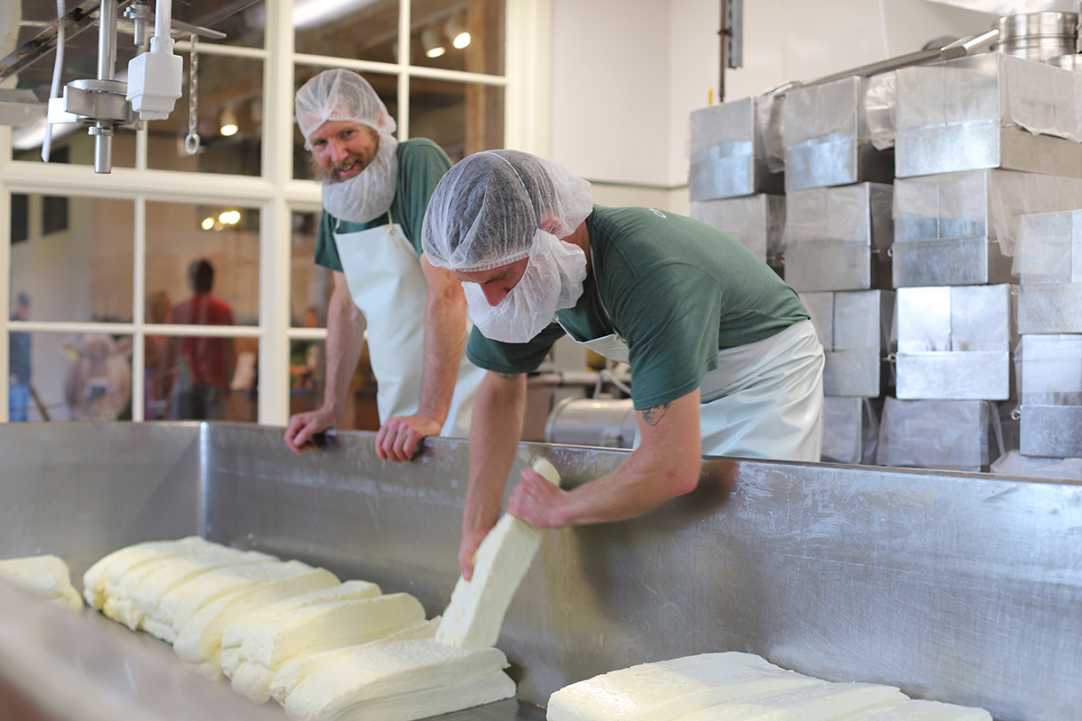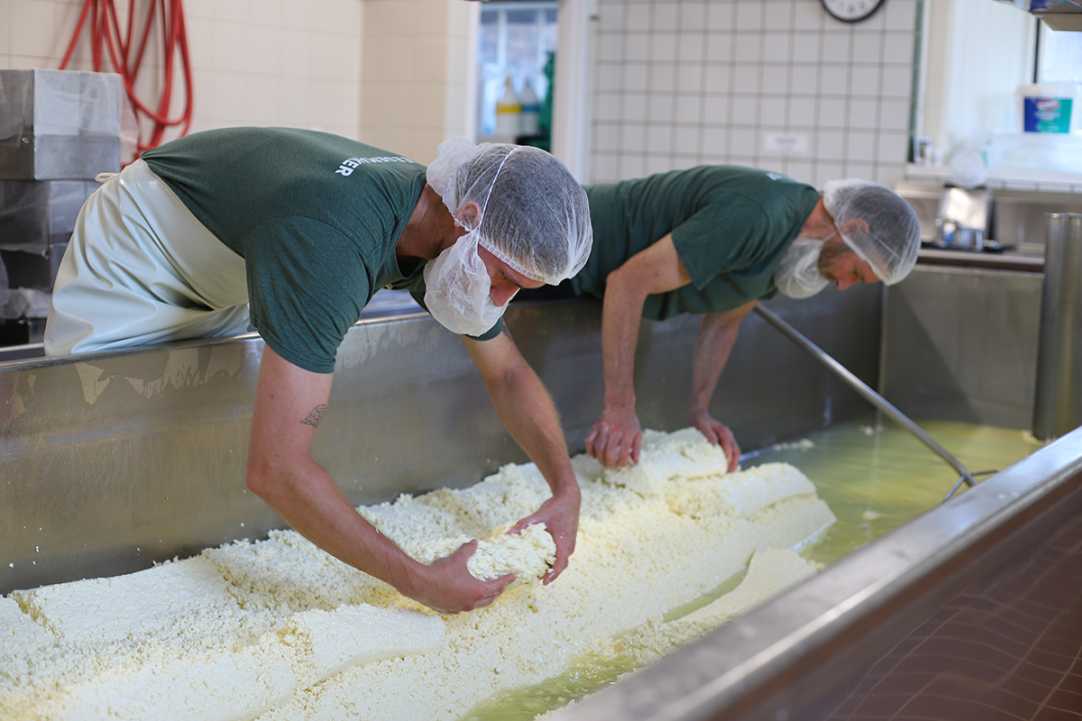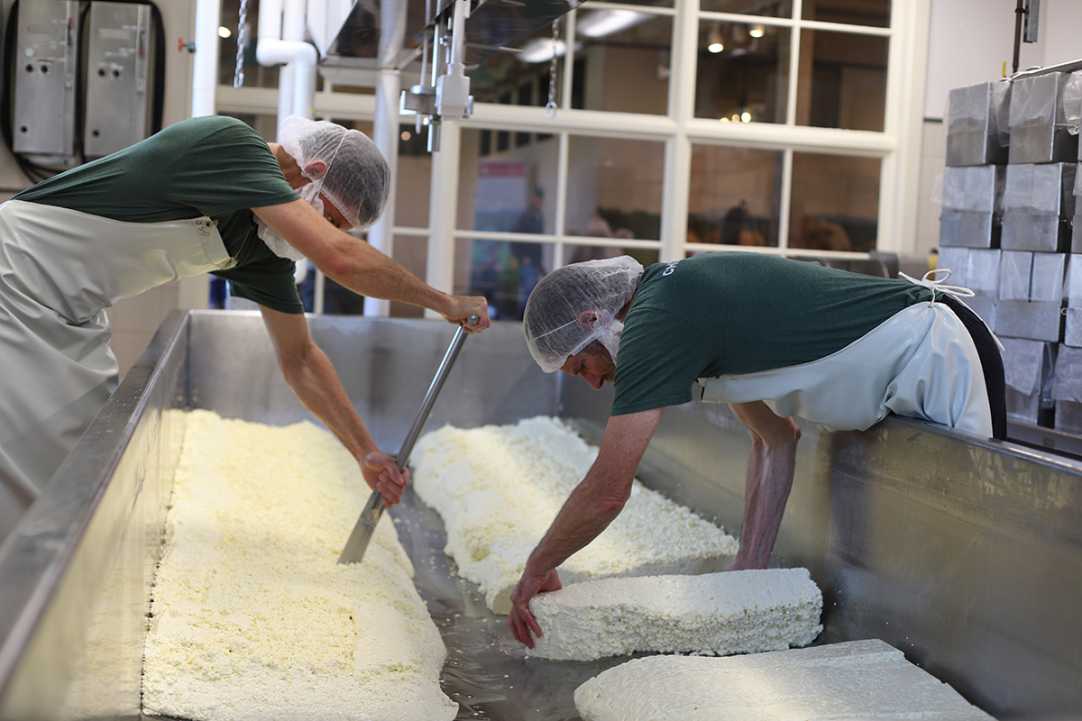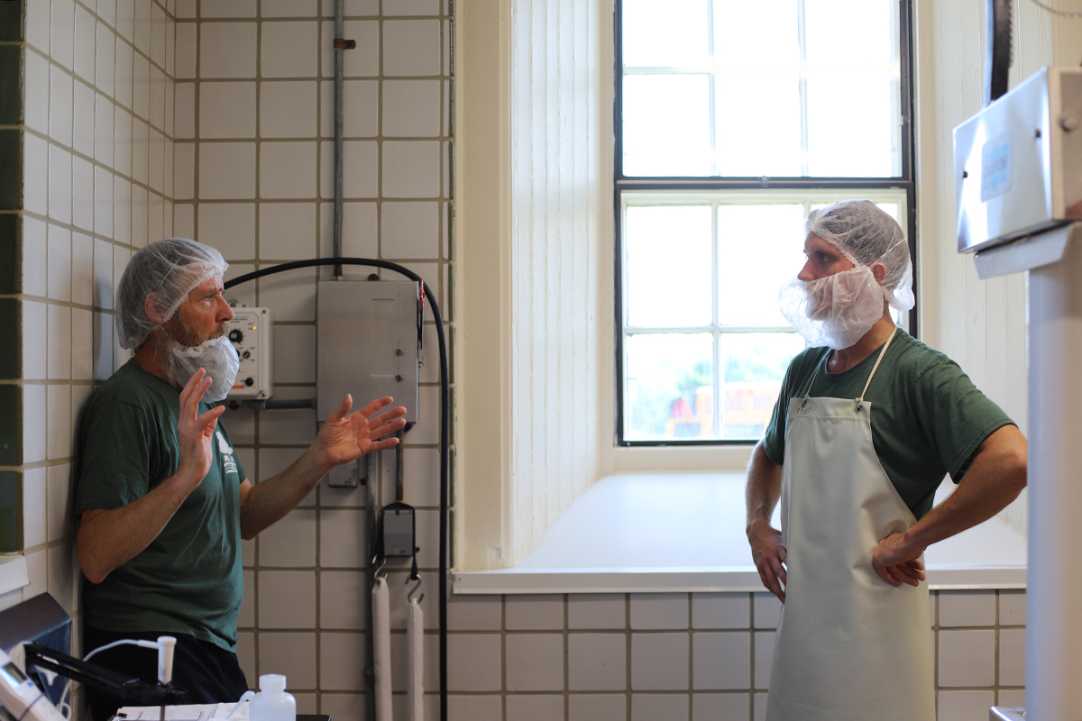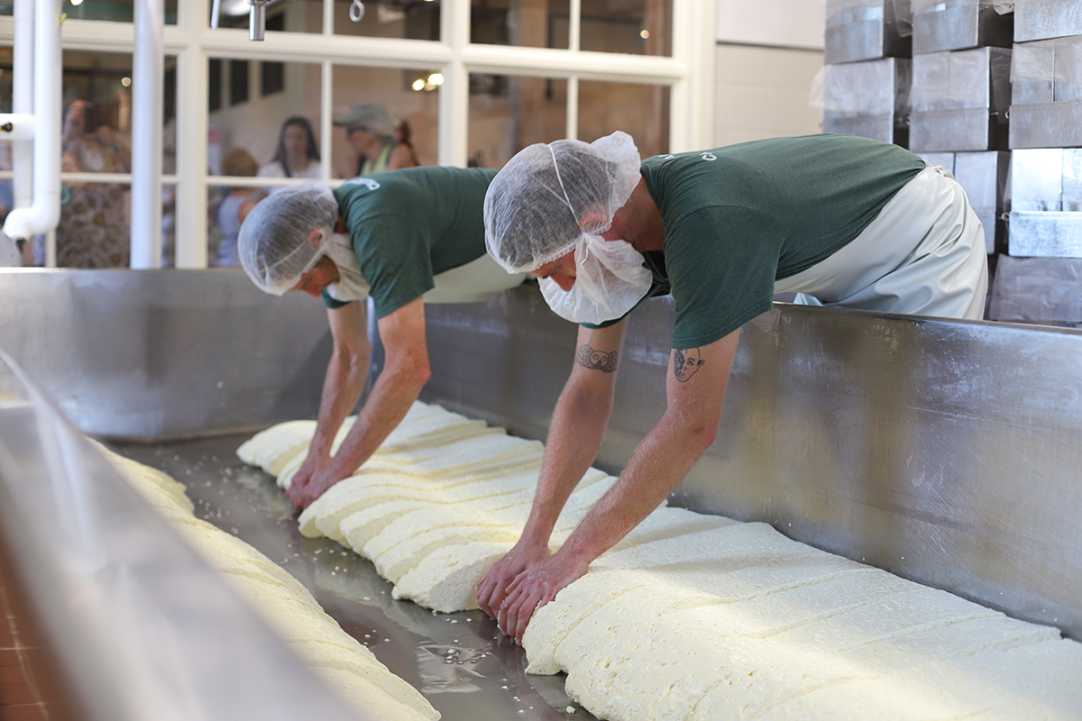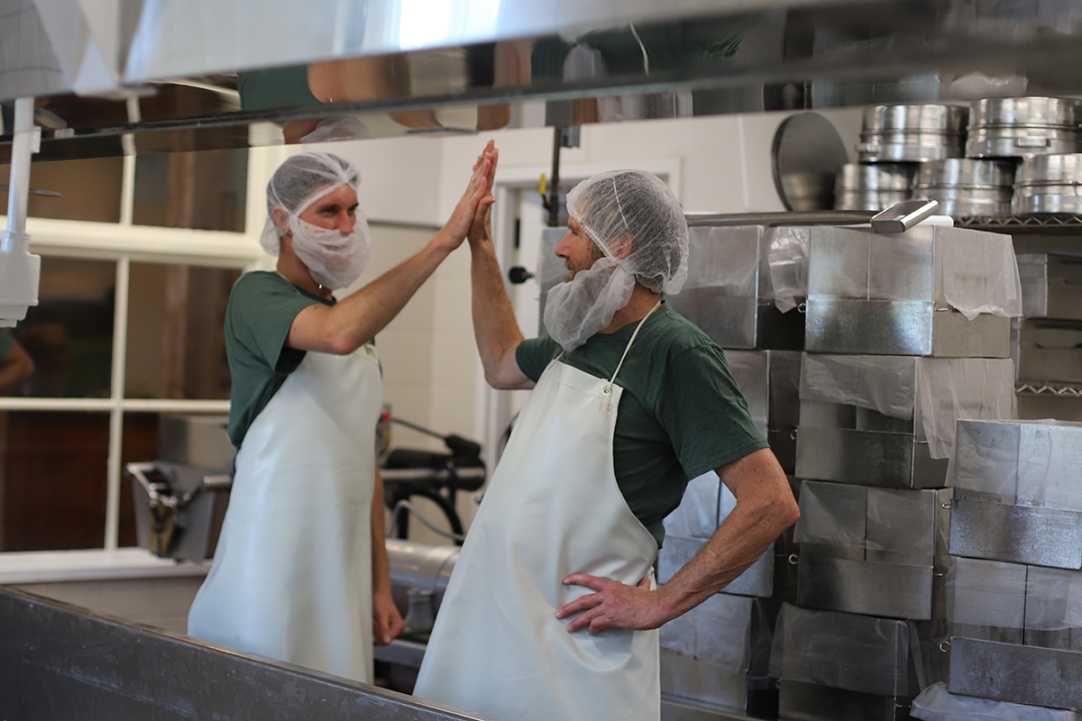Dear Sam, Peter, and Gus,
When I taste the cheddar from the Farm I can taste the ripe grasses, the rolling pastures, and dwell on the beautiful Brown Swiss Cows grazing them. I've had the privilege of observing the cows just after the milking; they come out exuberantly playful, full of vitality, they instinctively know that they will be heading to a bountiful pasture and be loved by Nature.
Sam, Peter, and Gus, the Dixon family story is inspiring. Your share a rare bond of love as kin. Your love is a reflection of your passion and reverence for your labor, in bringing forth Nature's gift of food and sustenance to humanity.
A Farming & Cheesemaking Family
Sam Dixon has been dairy manager at Shelburne Farms since 1996. His older brother Peter was a cheesemaker here back in the early 1990s, and since 2013, has operated Parish Hill Creamery and a dairy foods consulting business. Peter’s son Gus Slater-Dixon joined us in 2021 as a cheesemaker.
We sat down with all three of them to chat about their careers, why they do what they do, and what it is about being a Dixon that drew them along their paths. While the conversation is wide-ranging, not to say free-wheeling, it’s evident from the get-go what brought them to this table: Love of the land, love of craft, and love of the farm food that unites both.
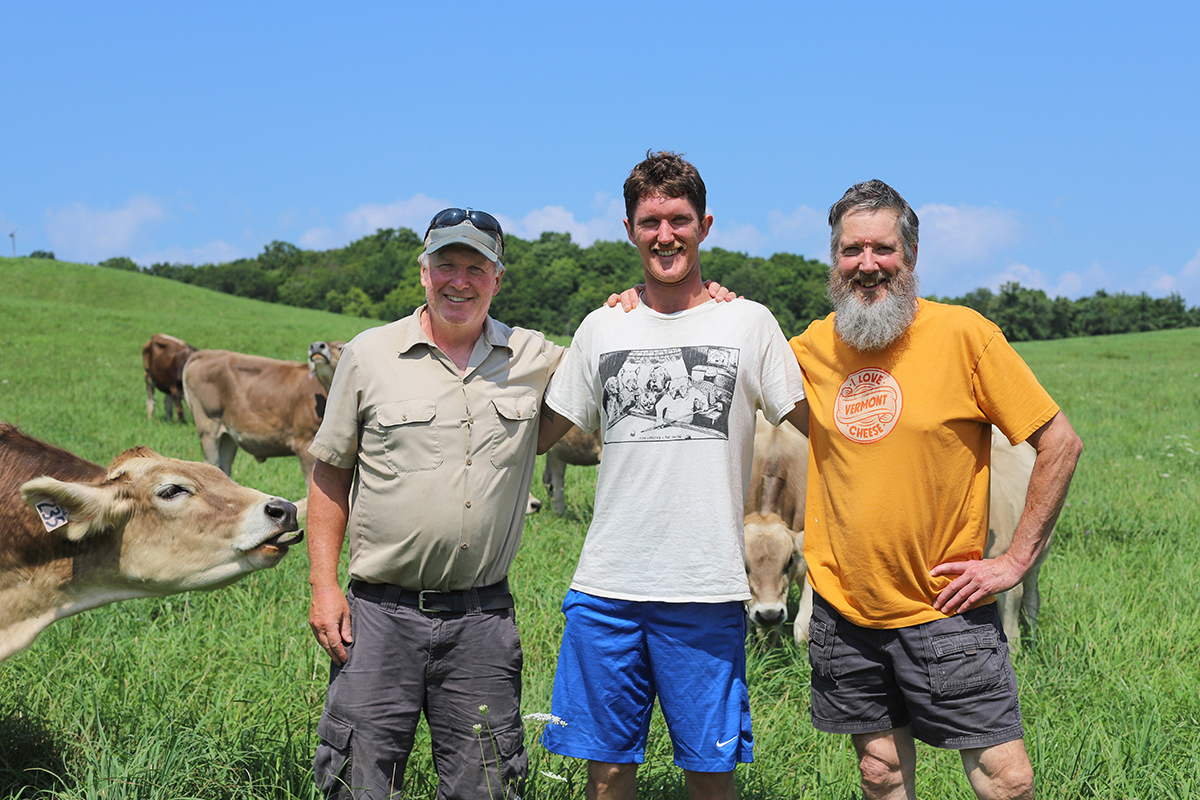
ORIGINS
Sam and Peter grew up on the family farm in Dummerston, Vermont, where they started a family business, the Guilford Cheese Company. “We ended up in this little barn,” Sam remembers. “I was milking cows on one side, and Peter was making cheese on the other.” It was a division of labor that suited them both. “You’ve always loved animals,” Peter says to Sam. “You were the little kid on our family farm that took to milking the family cow right away.” Sam nods.
When Guilford Cheese Company shuttered, Peter returned to UVM in 1990. He was looking for a job just when Shelburne Farms was looking for an experienced cheesemaking assistant. Peter was hired. He got a paycheck—and ideas. “Our family business had been about pasteurizing milk and not really grazing the cows,” he explains. “So I got here [to Shelburne Farms], where they make raw milk cheddar every day all from pasture and I thought, ‘This is really interesting and exciting. I want to do that.’”
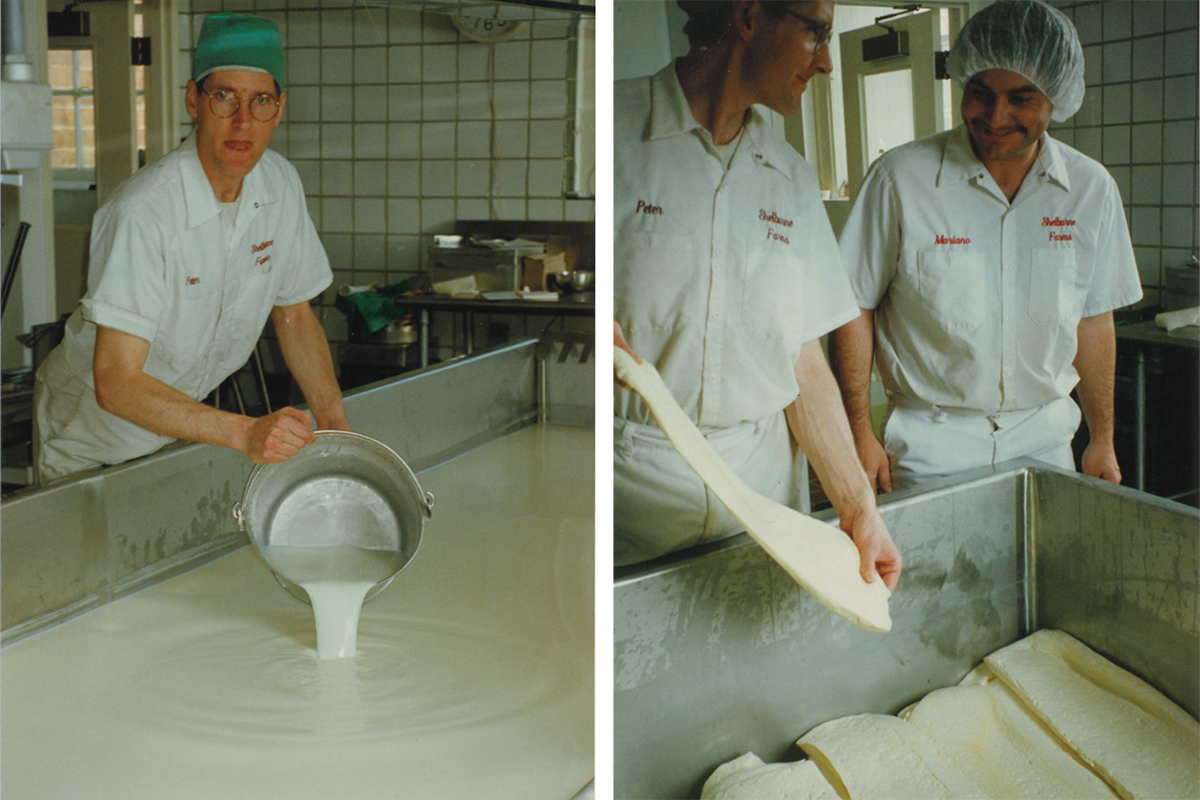
His next job as a dairy consultant in the Balkans deepened the interest. “[Cheesemaking there] was very craft oriented,” says Peter. “The material was so raw and so right from the land. You could taste that in the cheese.” He built his own dairy foods consulting business and in 2013, launched Parish Hill Creamery. And soon after Peter left Shelburne Farms, Sam came on board as dairy manager.
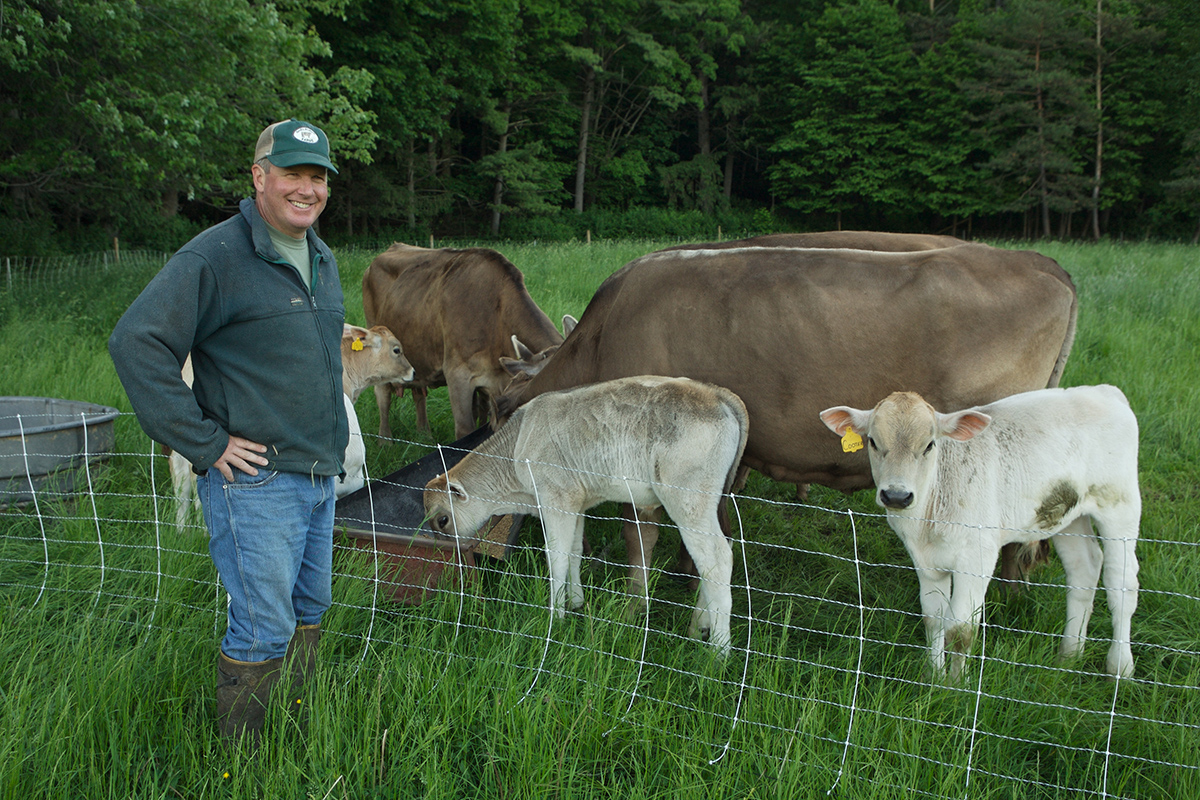
Of his own journey a generation later, Gus remembers, “I had always come here just to visit my cousins. I don’t think I ever saw the cheese window!” But when COVID hit, the newly minted UVM grad decided to apprentice as a cheesemaker with his dad. “It was incredible,” Gus enthuses. “I mean, I always wanted to learn cheese from you,” he says to Peter, “just because you're a resource like none other. It’s such an interesting, unique skill, working with your hands, minimal machinery—especially making the kind of cheese that you make. And I love aging caves. Humans should love caves. We go way back.” He laughs. “Everything set me up for doing cheesemaking going forward.” On a tip from a former Parish Hill apprentice—not from his dad—Gus joined our cheese team in late 2021. He was hired for his proficiencies, not his pedigree, but having an uncle here certainly eased the transition: Sam offered Gus a place to stay to start. “I eternally thank you for that,” he says to Sam.
ON CHEESEMAKING AND FARMING
“You're essentially trying to pull out water as you're making cheese [from milk],” Peter explains, offering a clear encapsulation of the cheesemaking process. “The better you are at doing that, the better you can predict how your cheese is going to age. The thing that affects that the most is the ratio of protein to fat. When there's more fat in the milk relative to protein, it's harder to pull the water out. Because the fat is kind of in the way. And if it's the opposite, water is removed quickly. So as a cheesemaker, you adjust.”
To make those adjustments, you need to understand the milk you start with. And for that, you need the farmer. As Peter says, “being in tune with what's happening on the farm assists you as a cheesemaker.” Sam agrees. “To discuss what's going on with the cheesemakers is critical,” he offers. “When you actually see someone and can say, ‘Well, the weather's doing this,’ or ‘we have a couple of fresh cows.’ Because it all affects the milk.”
Sam shares an example. “Our cows' production will change based on which pasture they're grazing. Right now they're out on 'Silo B' pasture, which is heavy wet clay, and they don't eat as well and they won't milk as well. When they move up to 'Silo A' pasture, which has our best soil–the grass is sweeter, higher calcium–they'll eat more and produce more. So it's all variable.” He goes on, “And we can do everything to manage the grass and the pastures, but you have to keep the equipment clean and everything running well. So sanitation is another variable. And then there's the human part of it, which is actually milking the cows.”
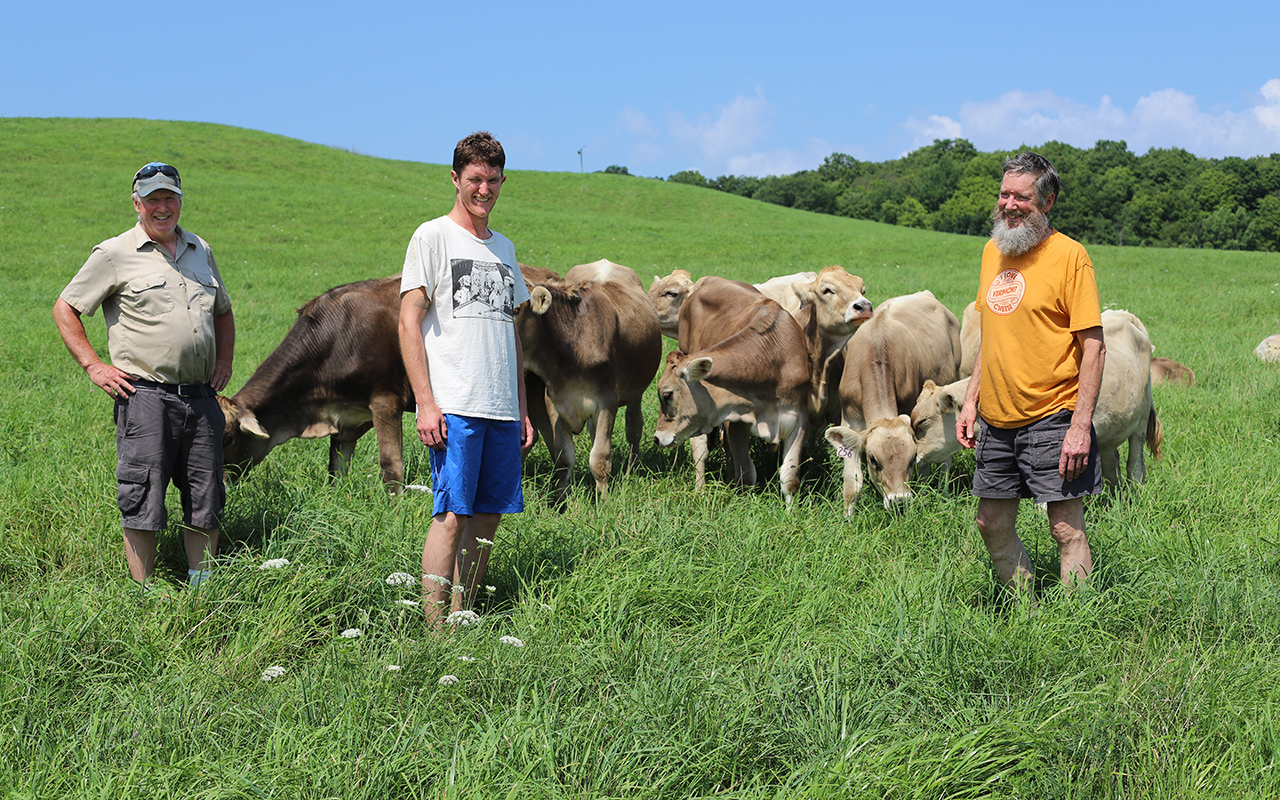
“I was listening to this farmer the other day,” he muses, “and he was saying, it's never one thing that you do that solves a problem. There are key steps that you have to get exactly right, but then there are 100 little things that you’ve also got to do and it's really hard work.” For Sam, that’s what it takes to get great milk from a healthy herd.
He turns to Peter and Gus, “Making cheese is similar, right?”
“Absolutely,” Gus replies. “It's maddening sometimes, all these little things, but that’s what makes it so interesting.” He looks at Peter, “I remember you saying that that's why you love cheesemaking, because it is mental, physical, and a little creative problem solving, even in its rigid framework. You have to think critically about what you're doing.”
Keeping relative consistency within distinctive (and delicious) variability. That’s the game and the goal when you make a raw milk farmstead cheddar.
ON FAMILY MATTERS
Asked what it means to each of them to be working as family, beside or in the footsteps of one another, they puzzle for a while, though it’s been clear throughout the chat that mutual admiration is involved. “My dad has always said how lucky I am to work with such great milk,” Gus says, referring to Sam. “And I’ve always known what a good farmer Sam is.” But, Gus admits, “Honestly, I don’t think about the family piece that often. It’s just what I grew up with. Being here in this room with Dad and Sam reminds me of how special it really is.”
Peter expands on that idea by suggesting to Gus, “Having a great relationship with your farmer, Uncle Sam, certainly helps you as a cheesemaker.” “Absolutely,” Gus agrees. “And,” Peter adds, “you can always bounce ideas off me.” Gus takes him at his word and immediately starts bouncing an idea. “I had this idea of changing the ripening time for the milk…” he begins. The conversation then temporarily dives deep into the pH and proteins of cheesemaking.
Sam contextualizes the father-son exchange—and the whole family connection—this way, “I think there is some knowledge, particularly for things like farming or cheesemaking, that has to be passed down. You can’t learn the subtleties or nuances from a book or YouTube video. That stuff can help but does not give the whole story.” It’s essentially, as he describes, “learning by doing with an experienced mentor.” What he doesn’t quite say is that when that mentor is family, it becomes something more.
WHAT MOTIVATES YOU?
“It’s feeding people, for sure.” Peter answers immediately to our final question. “In our community of Windham County and Western Mass, we feed a lot of people.” Gus nods in agreement then adds, “My favorite is just seeing the kids stare at me [through the viewing window] with open mouths. There's always one little kid who you see with their family and then they come back for milling and their face is just pressed up against the window. That's my favorite part because I love learning and I love engaging with people who love to learn.”
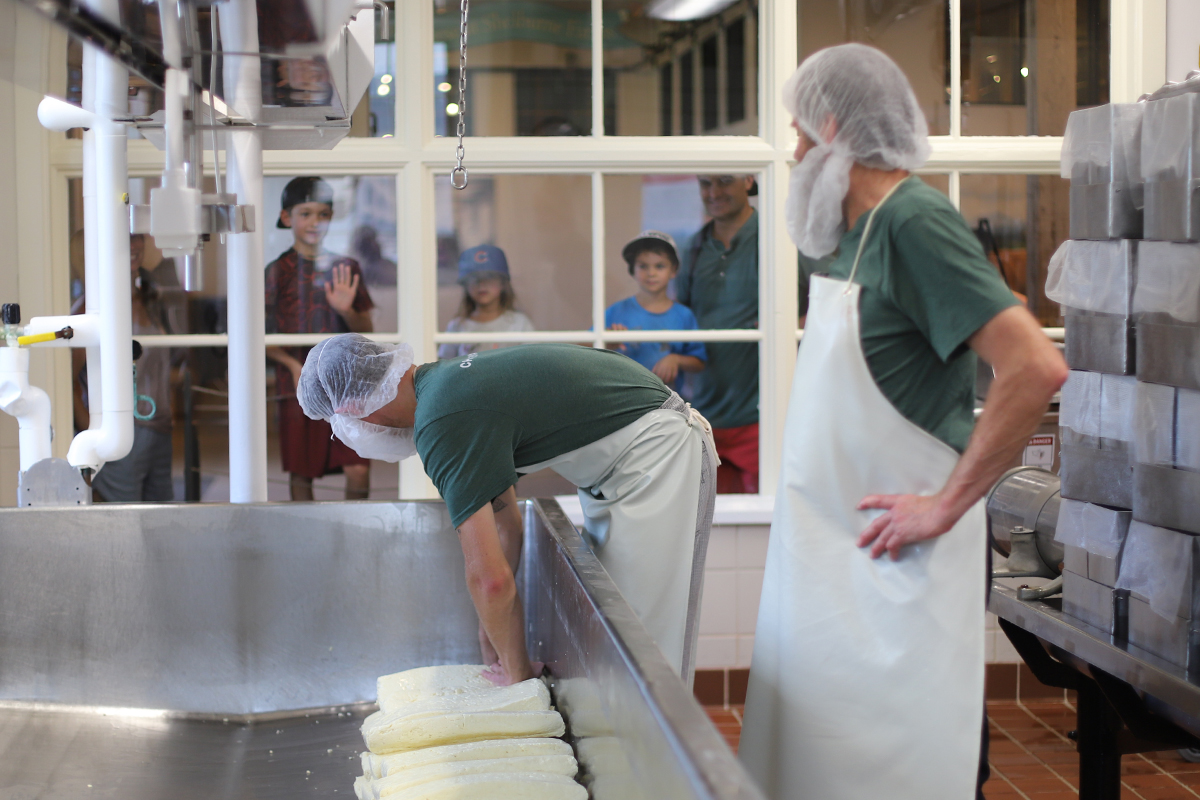
Sam answers by way of a story. “We were finishing wrapping the last hay recently,” he begins. “It was like nine o'clock. And I look out and this big fat raccoon is walking down the road like he owns the place. Then I look up and there are five Great Blue Herons flying in a formation. I've never seen that many flying together. I look over past Josh’s garden and the deer have come out, and all the fireflies are flashing all the way down the road.” He shrugs. “That’s why I love to do this.”
That connection to the natural world holds strongest for Sam, perhaps, but is felt by all of them. For Gus, it’s arriving early enough to see the morning sunrise, “especially near the equinoxes.” Or looking at Camels Hump from the make room. For Peter, it comes back to land and food. “Cheese is a farm food. It positions dairy farming towards sustaining the land. Which is why I love this place, because it's doing that.”
“We're producing food for people to eat and value,” Sam sums up. “That's what I love about Shelburne Farms. That's always been the legacy of the farm.”
Sam glances at his watch, undoubtedly thinking of those “100 little things” that await him back at the dairy. As he gets up to leave, Peter and Gus head to the make room. For the first time as fellow cheesemakers and as family, they'll make cheddar together at Shelburne Farms.
Comments
Such incredible people and such incredible stewardship of the land over so many years. And such cheese! Thank you all for this story.
Vermont cheese is the best I have found after living in 9 states. And the very best of all is the cheese made by Shelburne Farms. When our family visit us in Vermont from California, Seattle, Washington DC, Texas, and the Netherlands, cheese comes in second only to memories of the summer FarmCamps they attended.
Gus! I love you buddy! This had me smiling from ear to ear!
What a special bond, and family. We love Shelburne Farms; this story captures its true essence, and the people who’ve stewarded it so beautifully. Thank you Peter, Sam, and Gus. You’re our inspiration.

